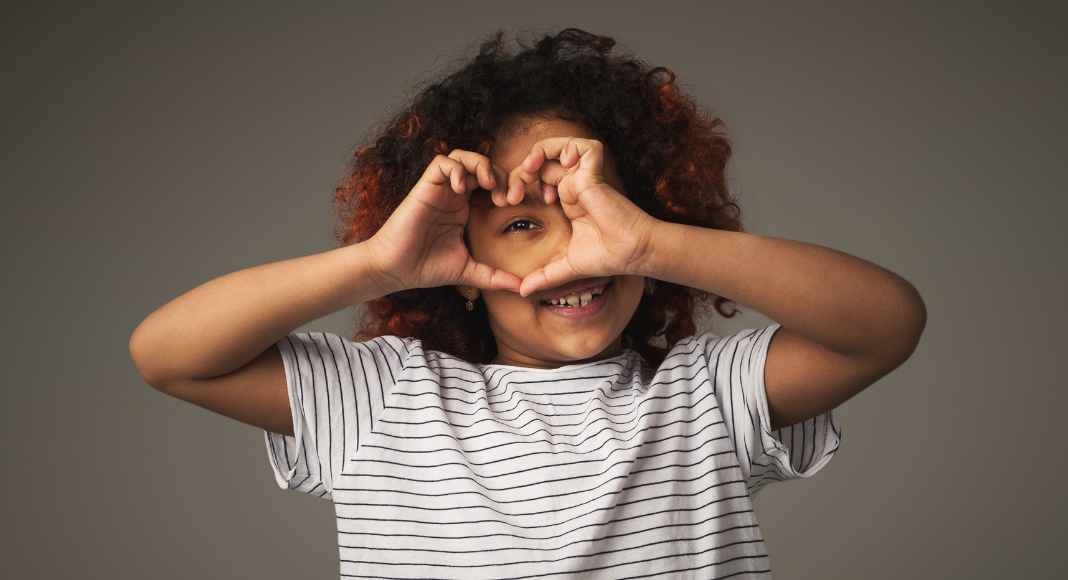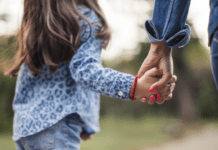

Let me set the scene. My daughter is sweet and always sees the best in people. She’s a 7th year Girl Scout who lives by the Girl Scout ideals of being friendly, caring, responsible, and strong. She loves being with her friends and playing games like soccer and gaga ball. My daughter is also biracial. I am a born and raised New Yorker and of Italian heritage, and her father is from the Caribbean.
She is proud of who she is and proud of her Italian and Jamaican heritage.
We live in a lower Westchester town with an enormous middle school. I’ve always felt lucky to have my children in a school district where the kids are diverse and the opportunities plentiful. So when my daughter came home saying she signed up for a gaga ball club right after starting middle school, I was happy she would have a safe space with friends and get a little energy out. The club was run by the school guidance counselor, which I saw as a plus because he would get a chance to know her a little bit.
Fast forward to the week before Christmas break. My daughter and two of her friends stood together chatting. I feel it important to mention here that her two friends are also black and in the sixth grade. They have been friends ever since they met, and my daughter was so happy when she learned they had signed up for the same club. On this particular day, it was too muddy or too cold for anyone to feel much like playing ball in a dirt pit, so many students were hanging out. While they were there, a seventh grade boy approached them and told them they were N__ (fill in the N-word here). He continued to talk down to them and explain why he thought they were N-words. He even went so far as to take out his cell phone to show them his googled definition of the word.
My daughter and one of her friends were so shocked and stunned that they literally couldn’t bring words to their lips. Their third friend heard the word, and it had the opposite effect. She was instantly furious and told the boy he better not ever dare speak to them in that way again. At some point, the guidance counselor finally got wind of what was happening, broke them up, and asked the boy to apologize.
But a forced apology after being caught is often a meaningless apology. The damage was already done. This word, spewed their way and drenched in hate, rang in their ears – their carefree happiness replaced with sadness, confusion, anger, and dread.
The Aftermath
In the weeks that followed, the three children that were victimized did not receive an apology or outpouring of concern from the administration at the school or the guidance counselor. Luckily, all three children have loving, caring, smart, and logical parents who knew we needed to use this as a learning opportunity for our children. I have had many long talks with my daughter about hatred, about the power of words, about forgiveness, and on and on.
What she knows is this: that for every ignorant person out there who thinks that skin color is a reason enough to be hateful, there are twice as many people in her corner that know better.
People who love her for who she is, people who value her as a member of their community, and people who will show her that she is proud of who she is matters above all else. She now knows that there will always be someone out there who has something to say about the fact that she is black, or only half black, or too tall or people who think they are smarter, or prettier, or faster. There will always be someone who has hate in their heart. It’s how she handles herself when faced with people like this that matters.
How To Help Your Child In A Similar Situation
I want to take it all away. Her tears, her frustration, I want her innocence to last a little longer, but I know it can’t. Instead, I want to build her up so that this incident won’t even matter years from now. Or that it will matter, but it will be a stepping stone to building a confident young woman with the tools to fight against hatred and adversity.
I also want to spread the word to other moms out there who may feel helpless and frustrated one day when their own child comes face to face with racism. I want you to know what I did that worked so that you can help your child too.
1. Ensure your child knows that they should ALWAYS feel comfortable telling you what happens in their lives. The school never called me to tell me what happened. Had my daughter not told me, she would have lived with that word on her heart, by herself, like a shameful little secret. There it would have festered and no doubt affected her in a way far worse than it did because she SPOKE to me. If not you, then someone, an aunt, an older cousin, whoever… make sure your child has someone to speak to.
2. Be an advocate for your child. Too many people are afraid to make waves, afraid to stand up for what’s right because what is right may also be what is uncomfortable. When I heard about the situation, I contacted the school. I’m not afraid to be “that mom.” I am a MAMA BEAR and not afraid to show it. This is my child, and if I don’t advocate for her, who will? What are we teaching our kids about standing up for ourselves if we don’t do it for them when they can’t yet defend themselves? There are too many people out there who I call the “thoughts and prayers” people. Those who hear about something that has happened and says their thoughts are with you. But do they do something? No. Do you want your child to think they are not worth the awkward or annoying conversations? That they are only worth your “thoughts”? Take a stand for them. They are always watching and will learn from you.
3. Praise your child for any positive way he or she handled the situation. I did. I’ve told my daughter I was so proud of her for telling me about what happened right away. I have told her I am proud of all three children for handling the situation with poise and intelligence. Just as easily as they said, you can’t talk to us like that, they could have hit the aggressor or called him names back, but they didn’t. I am proud of that decision, and I let her know that.
4. Surround your child with reasons to be proud of herself and her culture and identity. This is a preemptive step. Do this early and often. Does your child know where they come from? Do they have idols to look up to, reasons to be proud of their heritage, faith, ethnicity, etc.? Surround your child with stories from their culture, let them read stories where the main character looks like them, take them to movies or ball games where the star comes from the same town as you did. Make them proud of who they are. It will make it easier to brush off any racist or hateful comments if they are secure in their identity.
5. Have the conversations. Talk about the N-word and the meaning behind it. Tell your child why the use of the word it is not acceptable. Give them responses to have in their arsenal for if and when it’s slung their way. My daughter knows that should it ever happen again. She can say, “Your words are inappropriate, and I will not tolerate such hateful speech.” She can say, “Do not use that term around me. It is racist and unacceptable.” Yours can too – give them some powerful phrases so that a bully, a racist, an ignoramus, doesn’t ever see that they have won by using hate speech.
6. Above all else, make sure your child knows he is not alone. They are loved and valued. Say it often and make sure they know it and believe in themselves.
Resources and Further Discussions
If you’d like some literature that focuses on race, this is a good beginning list, although there are many more books and stories out there. Remember, you can make a difference for your child.





















Thank you for sharing this! I am inspired by the way you and the girls handled this incident and your tips are right on!
Comments are closed.